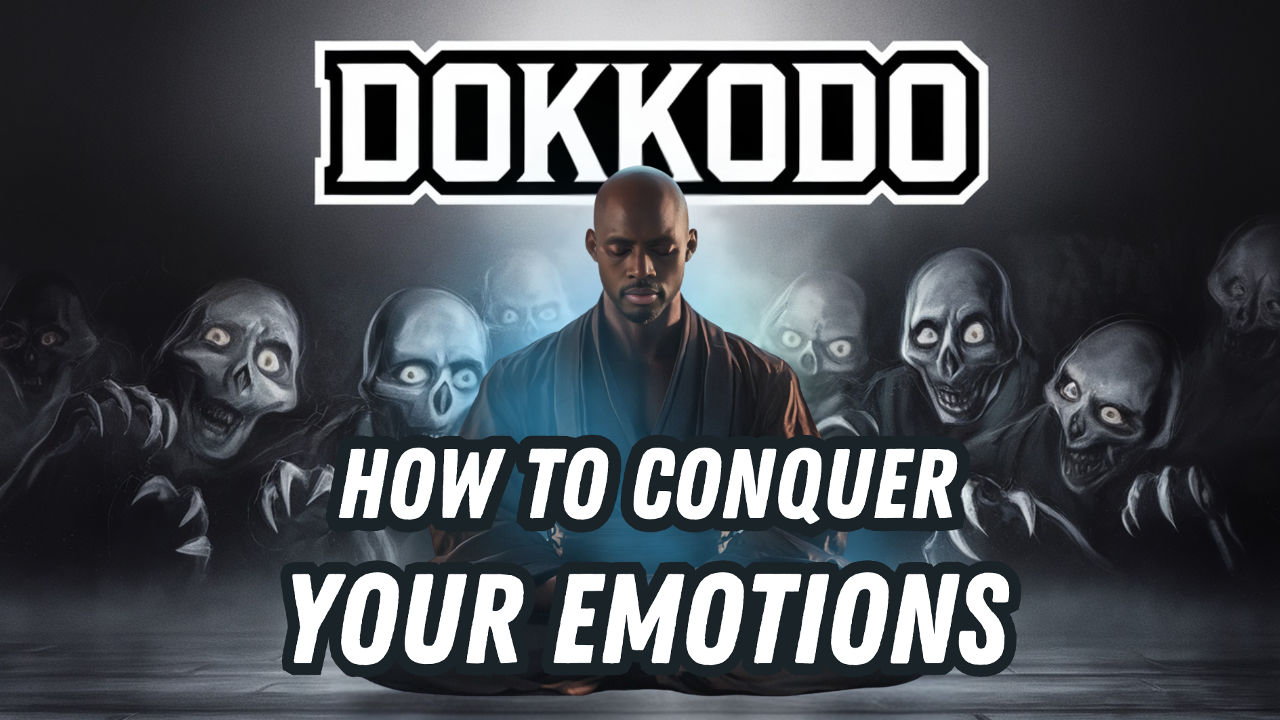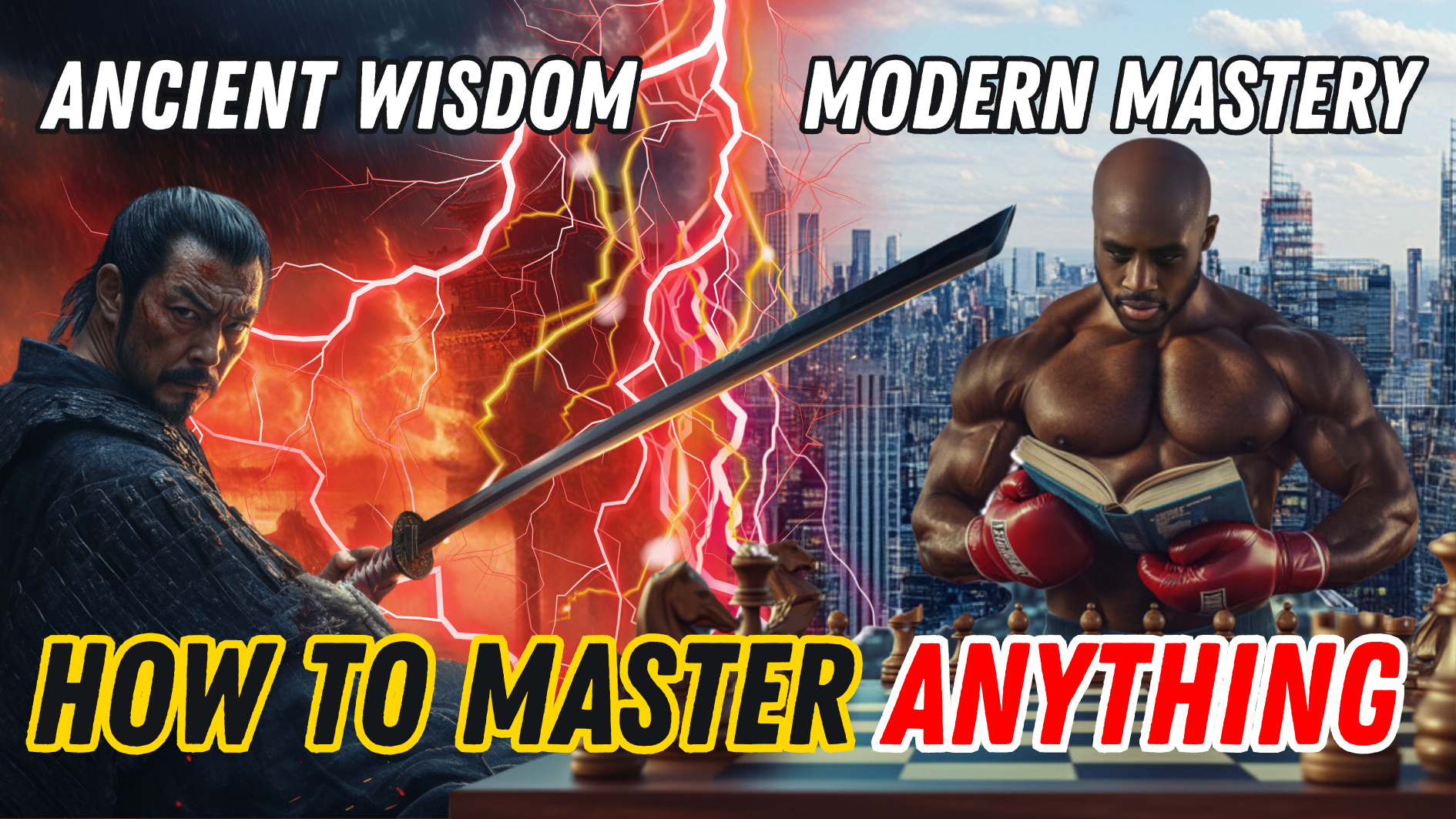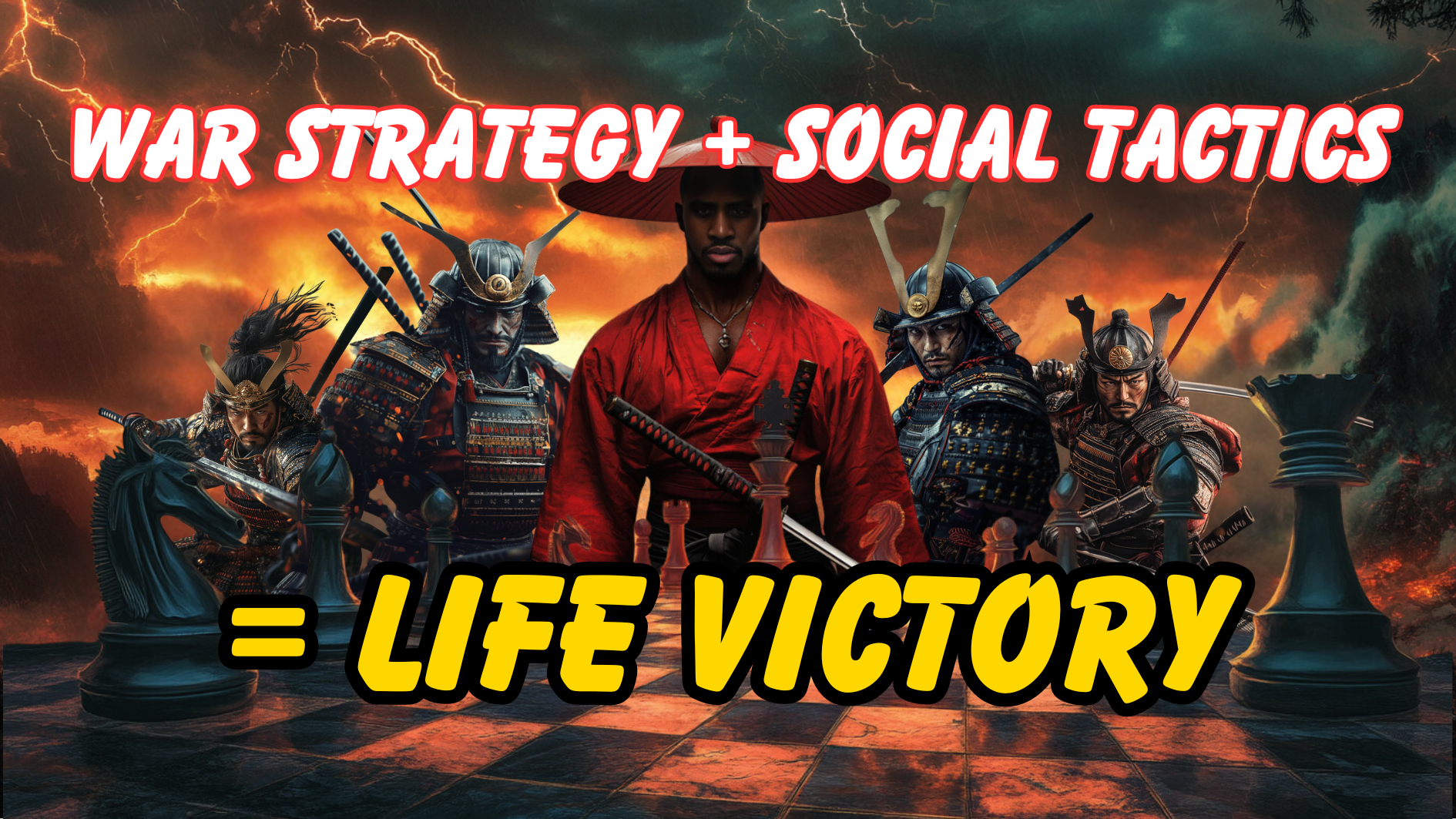The Hagakure: The Book of The Samurai may have been written in the early 18th century, but it contains some quotes, passages, and ideas that are highly relevant to the modern era.
It was written by Yamamoto Tsunetomo. a samurai in the early 18th century. He retired to a monastery after he was forbidden by law from committing “tsuifuku” (suicide of a retainer after his master’s death). Although he never fought in any battles, he felt that the samurai of his day were becoming weak, soft, and ineffective.
A younger samurai that visited Yamamoto many times over the years wrote down his words in The Hagakure: The Book of The Samurai. After reading the book, I’ve collected the 10 most useful and instructive quotes from it.
1. The danger of trying to reinvent proven concepts
“Because we do most things relying only on our own sagacity we become self-interested, turn our backs on reason, and things do not turn out well.”
There are people who claim to want to make progress, but they don’t want to listen to people who have already done it. Instead, they spend their entire life reinventing the wheel. By the time they’ve figured it out, they don’t have much time left to use it to go anywhere.
Many social skills involving interpersonal relationships and communication, you have to learn those on your own through trial and error; but when it comes to hard skills that you’ll use to change your financial status or physical health, you’re wasting valuable time if you try to learn them all on your own. I have a passage about this in my “How to be a better man” article.
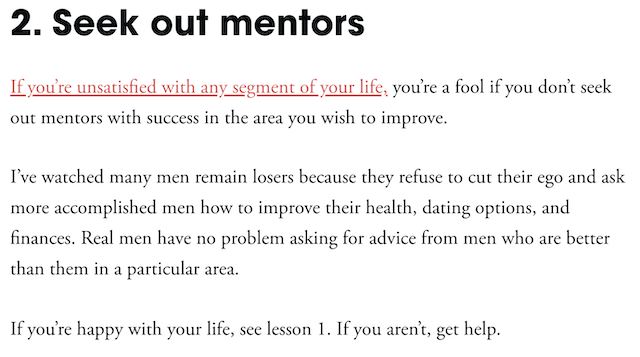
2. It’s always easier to say than do
“To discover the good and bad points of a person is an easy thing, and to give an opinion concerning them is easy, too. For the most part, people think that they are being kind by saying the things that others find distasteful or difficult to say. But if it is not received well, they think that there is nothing more to be done. This is completely worthless. It is the same as bringing shame to a person by slandering him. It is nothing more than getting it off one’s chest.”
Whether it’s good or bad, it’s much easier to comment on something than it is to do something about it. You see something similar in conversations, not just online but i real life.
People want to contribute to the conversation but have nothing meaningful to say. So they revert to effortless agreement or pedantic criticism. Because they can’t add anything or do anything that is useful, they act in a way that is “completely worthless”.
Another idea is also key in this quote: shame and brutal honesty are tools for changing behavior. While there are some cases where this is an effective tactic, it’s more often used a means of self-indulgence on the part of the criticizer. Far too many people use unsolicited honesty as an excuse for casual cruelty.
Boxing Lessons on Grit, Resilience, and Antifragility
In this e-book, I teach you 20 mindset lessons I learned from my 13-1-1 professional heavyweight boxing career.
Use these to conquer any challenges you face, in the ring or in life.
Learn how to develop the mindset of a fighter, from a fighter, so you can win the battles you face.
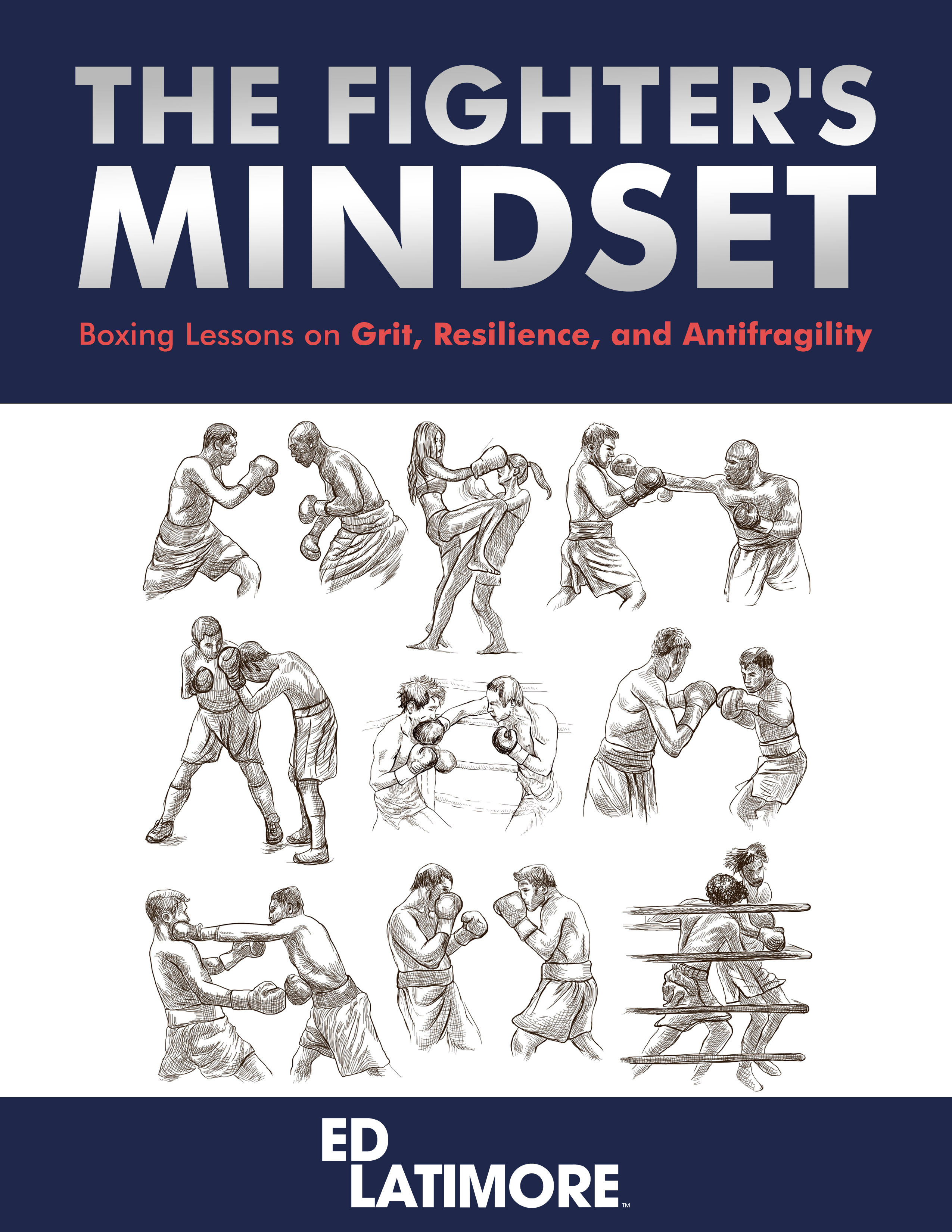
3. You attract more flies with honey than vinegar
“Praise his good points and use every device to encourage him, perhaps by talking about one’s own faults without touching on his, but so that they will occur to him. Have him receive this in the way that a man would drink water when his throat is dry, and it will be an opinion that will correct faults.”
If you want to bring up a person’s weaknesses, highlight their strengths first. Even better than that is not bringing up their weaknesses at all, but highlighting how they could be even stronger and do it in a way that leads them to realize that the weakness you want to address is holding them back.
This takes more skill, tact, and diplomacy than simply pointing out faults, but it tends to produce enduring changes in a person’s character. This is because it makes the person believe they recognized a weakness on their own and the motivation to fix it was all internal.
“A man convinced against his will, is of the same opinion still.” - Benjamin Franklin
4. The path from novice to master
“In one’s life. there are levels in the pursuit of study. In the lowest level, a person studies but nothing comes of it, and he feels that both he and others are unskillful. At this point he is worthless. In the middle level he is still useless but is aware of his own insufficiencies and can also see the insufficiencies of others. At a higher level, he has pride concerning his own ability, rejoices in praise from others, and laments the lack of ability in his fellows. This man has worth. At the highest level a man has the look of knowing nothing.”
Progress and skill acquisition in all disciplines follow the same 4 steps.
- Unconscious incompetence. This is the phase where you don’t know what you don’t know. There is a skill that you are missing but you don’t even know what it is yet. This is the lowest level that the Hagakure refers to when it says “a person studies but nothing comes of it, and he feels that both he and others are unskillful.”
- Conscious incompetence. This is the stage where we realize there is a gap and identify the exact skill we need to develop. We now know that we don’t know something vital to our success. This is the middle level that the Hagakure refers to when it says “he is still useless but is aware of his own insufficiencies and can also see the insufficiencies of others.”
- Conscious competence. This is where the effort to learn begins. When people speak of 10,000 deliberate hours of practice, this is the phase they’re referring to. This is the higher level that the Hagakure refers to when it says “he has pride concerning his own ability, rejoices in praise from others, and laments the lack of ability in his fellows.
A special note about this level:
This is where a person has the greatest chance of becoming insufferable. Whether it be because they’re interested in showing off or they arrogantly believe they’re better than people who haven’t learned, this is the stage where ego is greatest. This is also the point of frustration, where plateaus occur and setbacks feel bigger than they really are.
If a person can stay humble and patient in this phase, they should transition nicely into the next. - Unconscious competence. This is the stage of mastery and intuition. Now you aren’t learning so much as you’re refining. Your progress is largely driven by simplification and reduction. You’re also humble.
This is the highest level that the Hagakure refers to when it says “At the highest level a man has the look of knowing nothing.”
5. Every saint has a past and every sinner has a future
“If we were to cast aside every man who had made a mistake once, useful men could probably not be come by. A man who makes a mistake once will be considerably more prudent and useful because of his repentance. I feel that he should be promoted.’’
It seems like today, anything that you’ve ever done can and will be used against you at some point. While I believe that a man should pay for his crimes, there is a such thing as growth, repentance, and forgiveness.
In our society, the first thing is no longer accepted, even if the second has occurred, because, on a fundamental level, no one practices the third.
Making mistakes is part of being human. Even really bad mistakes. But these mistakes are necessary for growth. There is no way for a person to mature without first being, by definition, immature. Immature people tend to behave in a way that will reject mature people, but part of maturity is understanding this. Read five more signs of maturity in this blog post here.
The more I practice forgiveness, the less I expect others to do it.
— Ed Latimore (@EdLatimore) October 14, 2019
My executioners will be men I have pardoned for worse crimes than the ones I'll be judged for.
Such is burden of those who practice the art of letting go.
6. You can judge a book by its cover
“Whether speaking formally or informally, one should look his listener in the eye. A polite greeting is done at the beginning and finished. Speaking with downcast eyes is carelessness.”
“Although it seems that taking special care of one’s appearance is similar to showiness, it is nothing akin to elegance. Even if you are aware that you may be struck down today and are firmly resolved to an inevitable death, if you are slain with an unseemly appearance, you will show your lack of previous resolve, will be despised by your enemy and will appear unclean. For this reason it is said that both old and young should take care of their appearance.”
There was a 'Not Found' error fetching URL: 'https://twitter.com/EdLatimore/status/1371923704821780486'
Even hundreds of years ago, your appearance and how you interacted with others was considered a top indicator of character. This hasn’t changed at all.
The effort you put into your presentation speaks volumes to the world about your discipline and how much you value yourself. Even before science told us, people knew the power of looking someone in the eyes when you speak to them.
If you want to know who to give a job to, look at how they dress and groom themselves.
If you want to know who to trust, see if they look you in the eye during casual conversation.
Stop complaining about human nature and use it to your advantage. If you’re not sure where to start then read my No-BS guide to becoming an attractive man.
Learn from more books in less time with Shortform
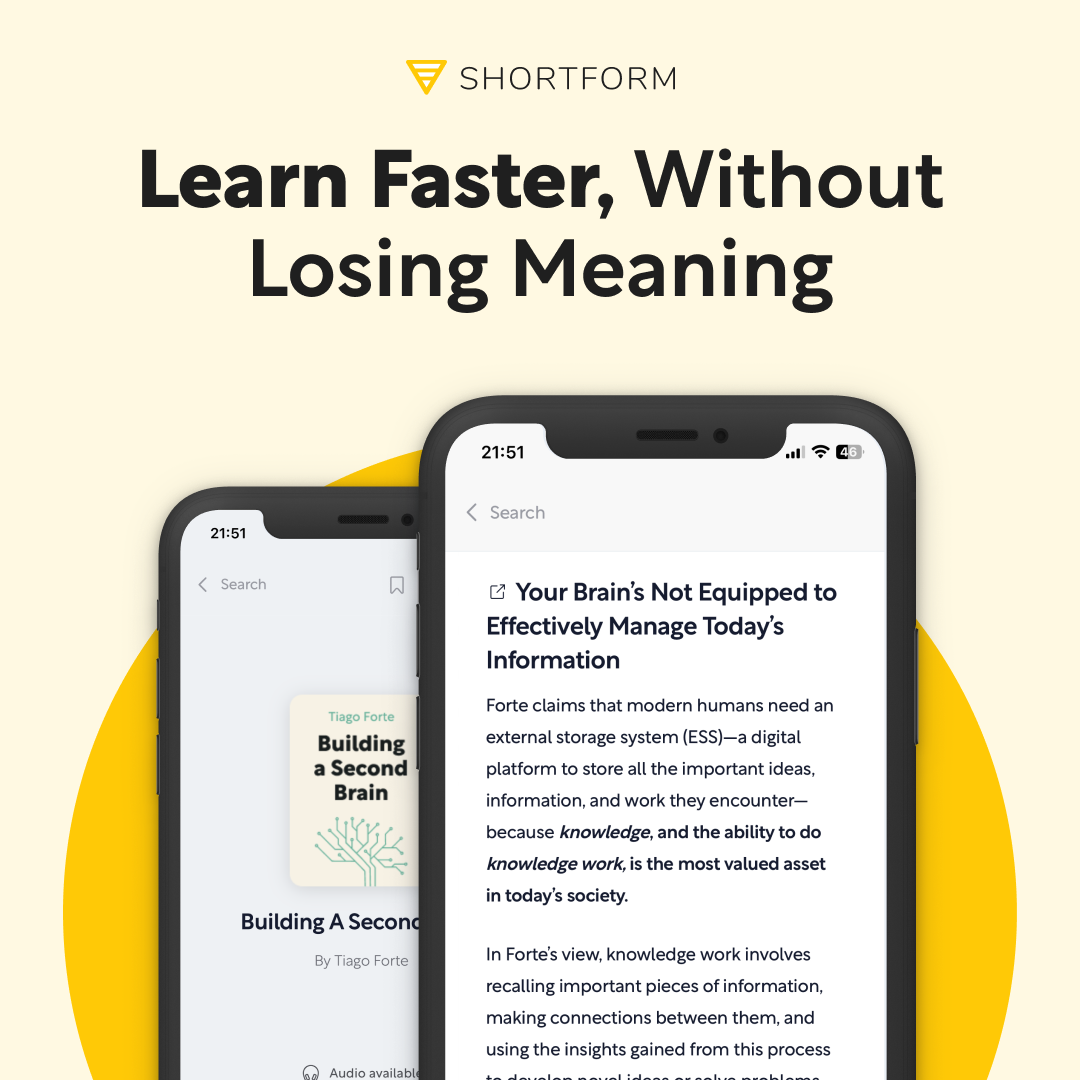
I don’t normally think you should read the summary instead of the entire book, but Shortform has completely changed my mind.
Their summaries are high-level works of art, complete with commentary and additional insights to help you bridge together information and concepts presented in the books.
But that’s not even the best part…
Each summary has an audio version so that you can listen on the go. You’re able to enjoy the summaries the same way you enjoy your favorite podcast! And they cost less than you’d spend on just one book.
Save time and money with Shortform. Use the link below to save 20%
Check out Shortform!7. Live in the moment to get more out of life
“There is surely nothing other than the single purpose of the present moment. A man’s whole life is a succession of moment after moment. If one fully understands the present moment, there will be nothing else to do, and nothing else to pursue. Live being true to the single purpose of the moment.”
There is no such thing as the past or the future. They are merely ideas that we use as placeholders for concepts and communication.
I don’t mean this in the sense that nothing’s ever happened before this moment or nothing will ever happen after it; only that there is no way for you directly interact with the future or the past, so for all intents, it’s not real—or, at the very least, there’s no way for you prove that it’s real.. The only thing you have is the present moment.
When you commit to maximizing the present moment, then you experience unmatched peace and confidence. Very few people in this world know what it’s like to have singleness of purpose on the one task/person/feeling that demands their attention.
If you can do this for even one minute, then you have unlocked a secret that gives you a great advantage for the rest of your life.
8. Life is too short to entertain nonsense
“Human life is truly a short affair. It is better to live doing the things that you like. It is foolish to live within this dream of a world seeing unpleasantness and doing only things that you do not like. But it is important never to tell this to young people as it is something that would be harmful if incorrectly understood.”
The social media generation has to face an uncomfortable truth: there is a lot of mandatory unpleasantness in life. Most of you will not make a living from your hobbies and passions. You will have to pull yourself through and (hopefully) out of drudgery like everyone else.
Just because you see someone taking trips on IG and creating a lifestyle highlight reel doesn’t mean that you get to suddenly acquire it by willing it into existence. Just because you want to do anything doesn’t mean that you will or even deserve to do it.
In general, younger people have always wanted things quickly, but everyone now days so enamored with ideas like “follow your passion” and “do what you love”, that they forget that most of life does not afford you this luxury because it’s a luxury. You have to earn it.
With that said, I think it’s important to set up a life where can quickly get past a lot of necessary unpleasantness so you can devote more time to things that you find enjoyable for the few decades that you have on this planet. The sooner you’re able to find a labor of love to toil away on, the sooner you will fall in love with life.
9. Tsunetomo understood why you get haters
“People will become your enemies if you become eminent too quickly in life, and you will be ineffectual. Rising slowly in the world, people will be your allies and your happiness will be assured.”
If you want to make people uncomfortable, quickly improve your status relative to theirs.
— Ed Latimore (@EdLatimore) July 2, 2020
People can handle slow changes. We don’t do too well when the change is sudden.
For example, you can deal with chronic poverty way easier than you can with suddenly losing everything. People can deal with a person getting better than them if the change is slow and gradual. If you suddenly start doing better than them without appearing to have worked as long or as hard, then you’re going to have haters. You may never fully get used to having haters, but use my guide to learn to deal with them.
You create this resentment, not because you’re doing better than them, but because they aren’t doing as well despite having (in their own estimation) worked as hard or harder. It feels like the universe has slighted them and they take this frustration out on you.
This is why, generally speaking, it’s not a good idea to flaunt your success or wealth.
There are few things to be gained and many to be lost by doing so. And before you say that “real friend” would just be happy for you, this is just human nature. Your friend doesn’t want to be a hater, but they can’t help it.
Boxing Lessons on Grit, Resilience, and Antifragility
In this e-book, I teach you 20 mindset lessons I learned from my 13-1-1 professional heavyweight boxing career.
Use these to conquer any challenges you face, in the ring or in life.
Learn how to develop the mindset of a fighter, from a fighter, so you can win the battles you face.

Recap of the 10 best quotes and ideas from The Hagakure: The Book of Shadows by Yamamoto Tsunetomo
- “Because we do most things relying only on our own sagacity we become self-interested, turn our backs on reason, and things do not turn out well.”
- “To discover the good and bad points of a person is an easy thing, and to give an opinion concerning them is easy, too…”
- “Praise his good points and use every device to encourage him, perhaps by talking about one’s own faults without touching on his, but so that they will occur to him.”
- “In one’s life. there are levels in the pursuit of study….”
- “If we were to cast aside every man who had made a mistake once, useful men could probably not be come by.”
- “Whether speaking formally or informally, one should look his listener in the eye…”
- “Although it seems that taking special care of one’s appearance is similar to showiness, it is nothing akin to elegance.”
- “There is surely nothing other than the single purpose of the present moment.”
- “Human life is truly a short affair. It is better to live doing the things that you like…”
- “People will become your enemies if you become eminent too quickly in life…”


